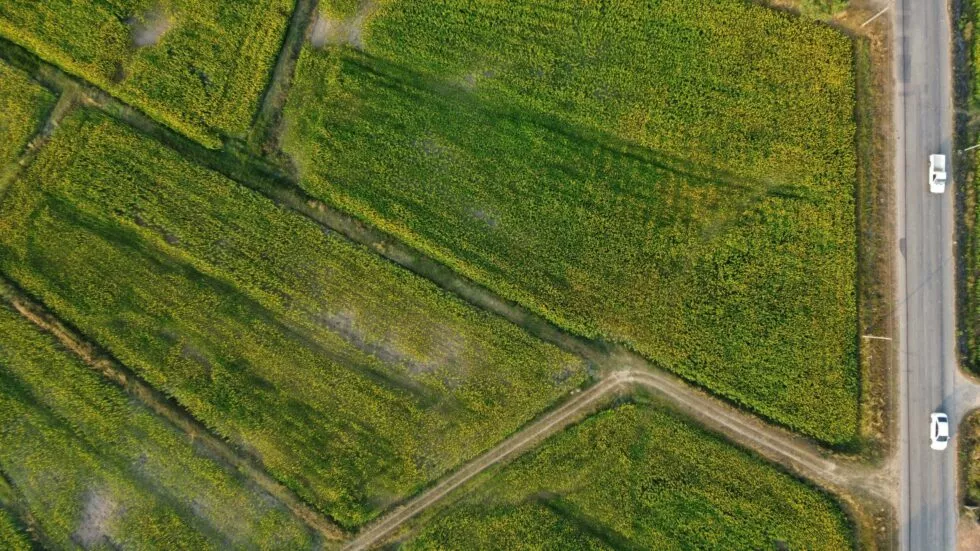What types of soil studies are available and how do you choose the right one?

Understanding soil studies to make better choices
When it comes to building or developing land, choosing the right soil study is essential. Different types of geotechnical and hydrogeological studies are available depending on the characteristics of the soil and the specific needs of the project. The main objective of a soil study is to understand and anticipate the reactions of the soil to the stresses to which it will be subjected. This stage helps to avoid future problems such as subsidence, landslides or water infiltration.
Soil studies are often considered as insurance against unforeseen geological events that can cause construction delays or budget overruns. They are also a guarantee of safety for the inhabitants and users of future structures. As an owner, understanding the importance of these studies and how they apply to your specific project is important to guarantee its success.
Geotechnical studies: analysing the nature of the soil
Geotechnical studies are essential to determine the composition and stability of the soil. They include various types of analyses such as the preliminary study, the design study and the execution study. The preliminary study evaluates the general quality of the soil via sounding. The design study refines this data to design the appropriate foundations. Finally, the execution study provides monitoring during the work to ensure that the soil behaves as expected. Each stage plays a decisive role in guaranteeing a stable and durable structure.
In addition to laboratory tests, in situ methods such as drilling, penetrometric sounding or load tests are commonly used to obtain an accurate picture of the soil’s bearing capacity. This information is crucial to avoid costly mistakes, such as building subsidence or structural cracks, which can occur if the soil’s capacity is wrongly assessed.
Hydrogeological studies: controlling water in the soil
Hydrogeological studies focus on the presence and movement of water in the soil. These studies prevent problems related to excess water, such as flooding or subsidence of foundations. They assess the permeability of the soil, the level of the water table and any underground water sources. The results of the hydrogeological study enable the design of effective drainage systems and the choice of moisture-resistant materials, thus ensuring the longevity of the constructions.
In addition to helping to manage water risks, these studies also provide valuable information on the potential environmental impact of the project. For example, they can reveal risks of groundwater pollution or impacts on surrounding ecosystems, thus influencing the design of wastewater management systems.
How to choose the appropriate soil study?
Choosing the right soil study depends on several factors, including the nature of the project, the geographical location and the type of soil. For constructions in urban areas, a detailed geotechnical study is often necessary due to the complexity of the soil. On the other hand, a project in a rural area could require a hydrogeological study. The involvement of experts from the planning stage is important to identify the relevant studies, optimise costs and ensure the safety of the project.
It is also essential to consider local regulations and legal requirements, which may dictate the type of tests required before undertaking a construction project. Working with geotechnical engineers and hydrogeologists from the outset can help you navigate these requirements and ensure that your project meets the standards.
The relevance of soil surveys in different contexts
Soil studies are essential for any type of construction project, whether it involves individual houses, buildings or sanitation. They make it possible to secure the investment by reducing soil-related risks. In addition, they facilitate obtaining the regulatory authorisations necessary for carrying out the work. By understanding the characteristics of the soil, it is possible to adapt construction techniques and ensure harmonious integration into the natural environment.
Soil studies for residential projects
Residential projects, such as the construction of detached houses or housing estates, often require specific soil studies. A geotechnical study enables the design of stable foundations that are suited to the type of soil encountered. In parallel, a hydrogeological study may be required to design an effective drainage system, avoid damp-related problems and ensure the durability of the constructions. These studies guarantee not only the safety of residents, but also the value of the property.
Soil studies for sanitation
The soil study for sanitation is an essential step when considering the installation of autonomous sanitation systems. This study aims to evaluate the soil’s capacity to infiltrate and treat wastewater efficiently and sustainably. It takes into account the permeability of the soil, the level of the water table and the topographical characteristics of the land. These elements determine the most appropriate type of sanitation system, whether it be sand filters, dispersal trenches or phyto-purification. A properly conducted soil study for sanitation not only guarantees compliance with local regulations, but also protects the environment by preventing groundwater contamination.
Aquatiris: experts to carry out your soil study
At Aquatiris, we are able to carry out your soil study. Our experts are there to provide you with precise analyses adapted to your project, taking into account the specificities of your land and the constraints of your project. Don’t hesitate to call on our services to benefit from the expertise of our professionals and ensure the success of your project.
Conclusion: invest in a soil study to secure your projects
In conclusion, choosing the right type of soil study is an important step in the success of any construction project. Whether for residential or sanitation projects, geotechnical and hydrogeological studies provide an understanding of the nature of the soil, make structures safer and prevent future problems. By investing in a suitable soil study, you not only guarantee the sustainability of your project, but also its compliance with safety and environmental standards. At Aquatiris, our experts are there to support you and carry out the soil study for your sanitation project.

